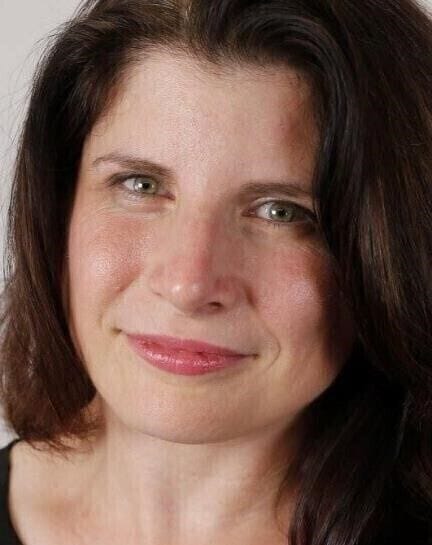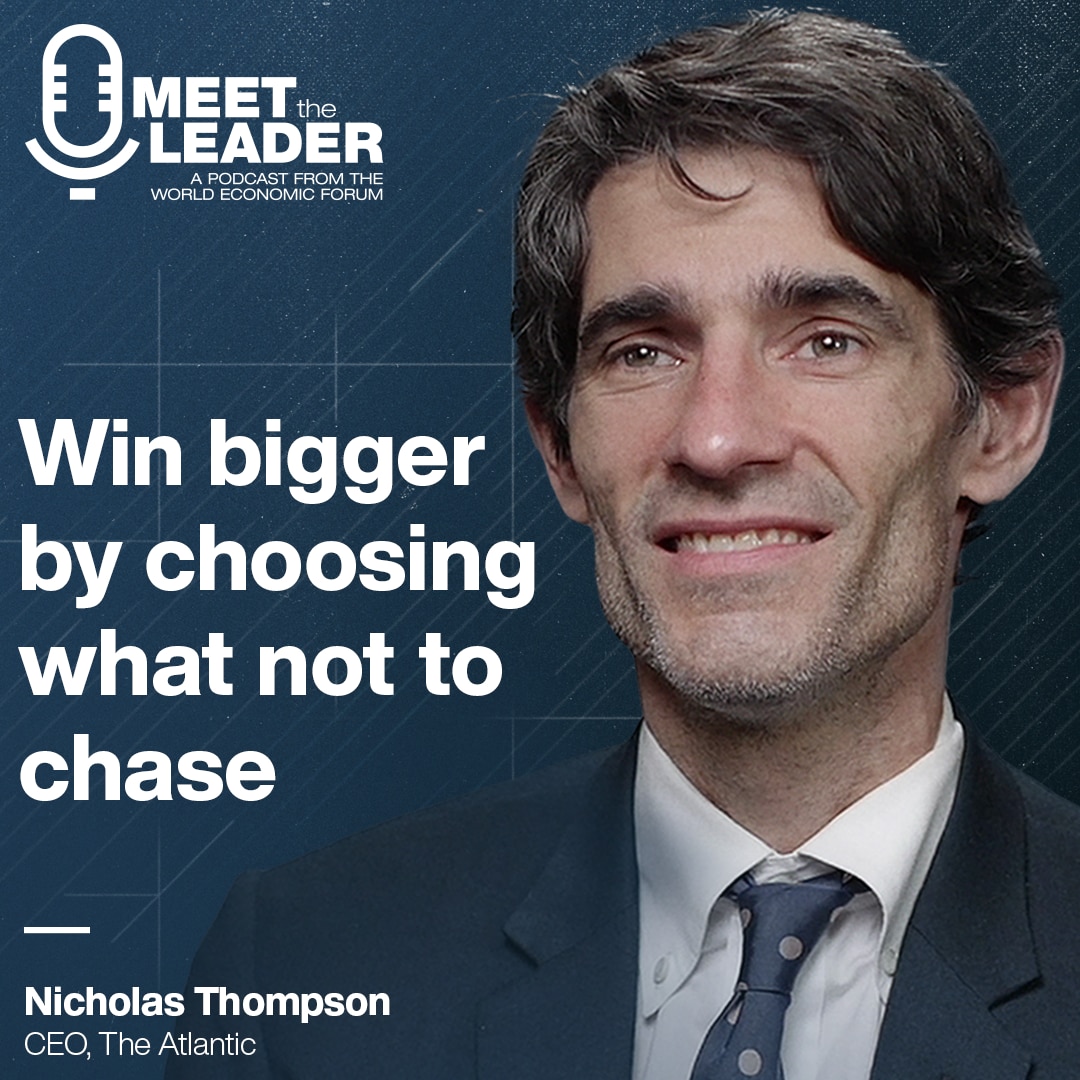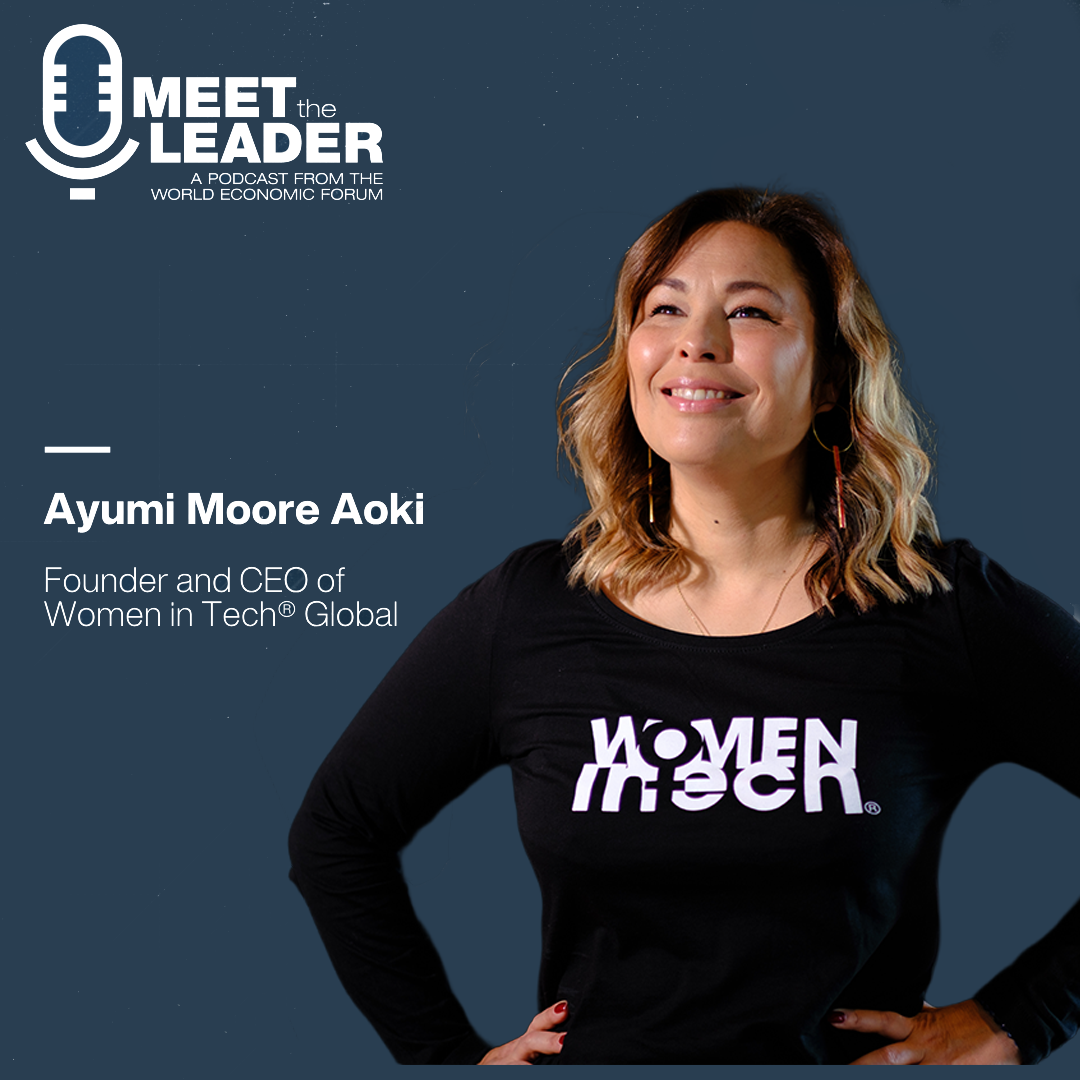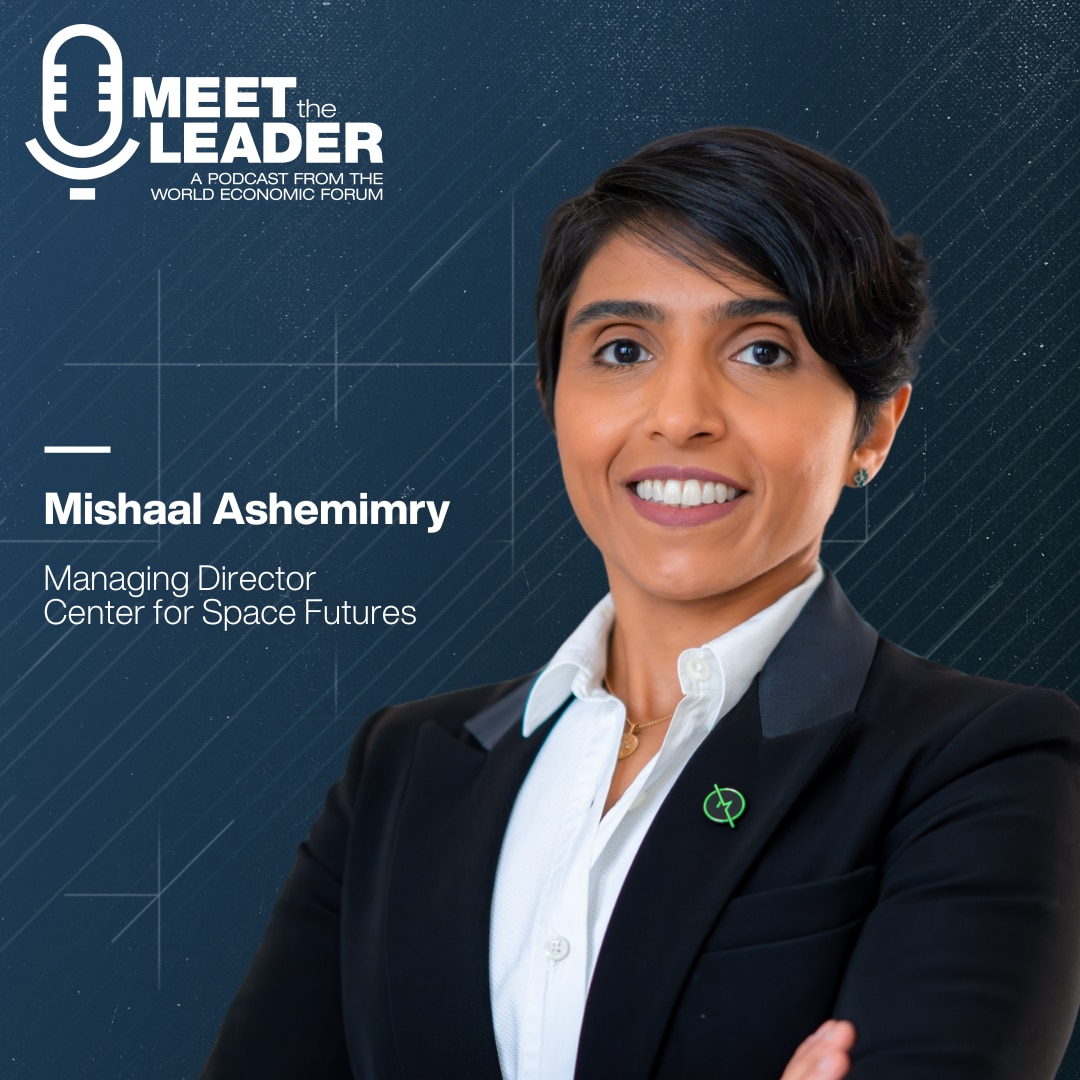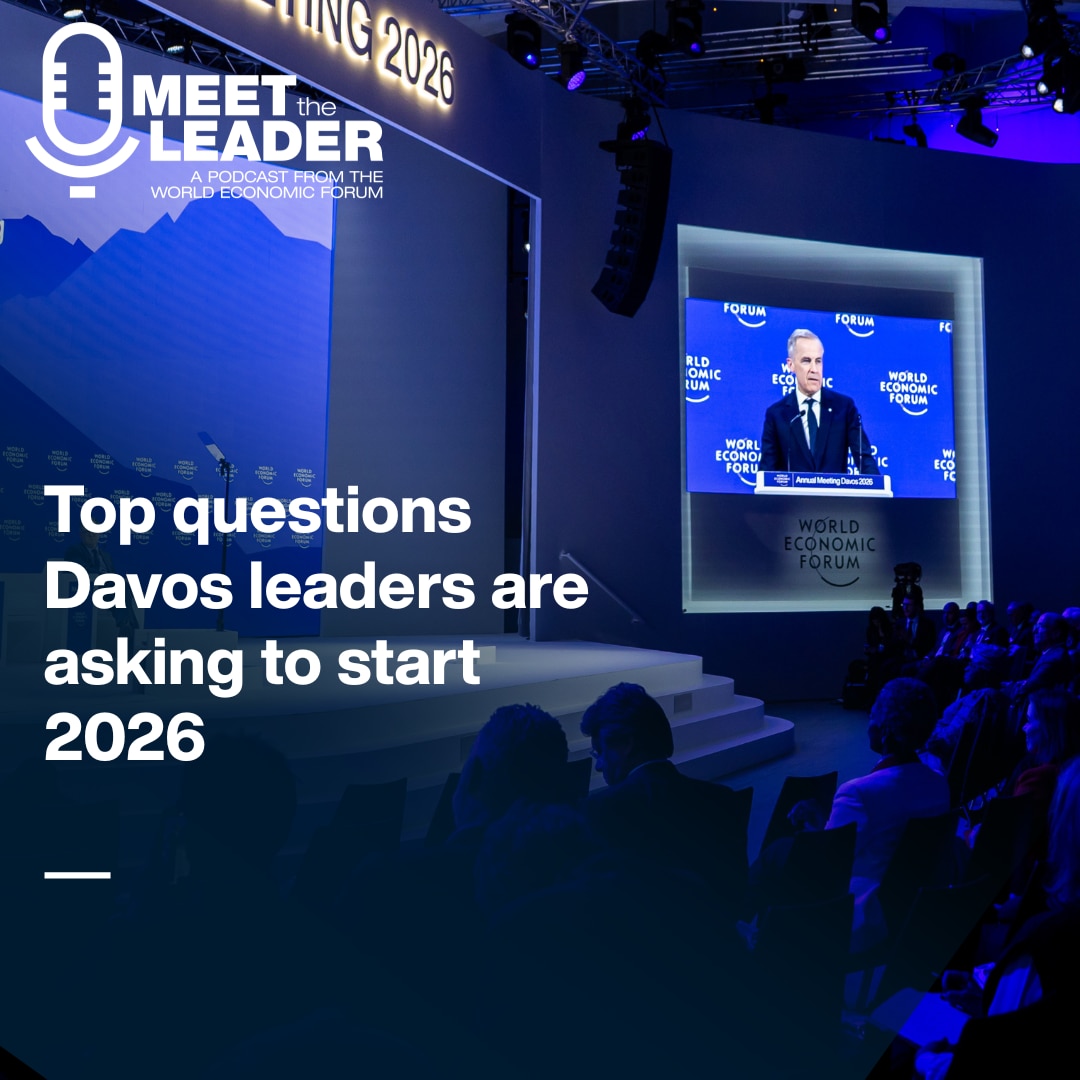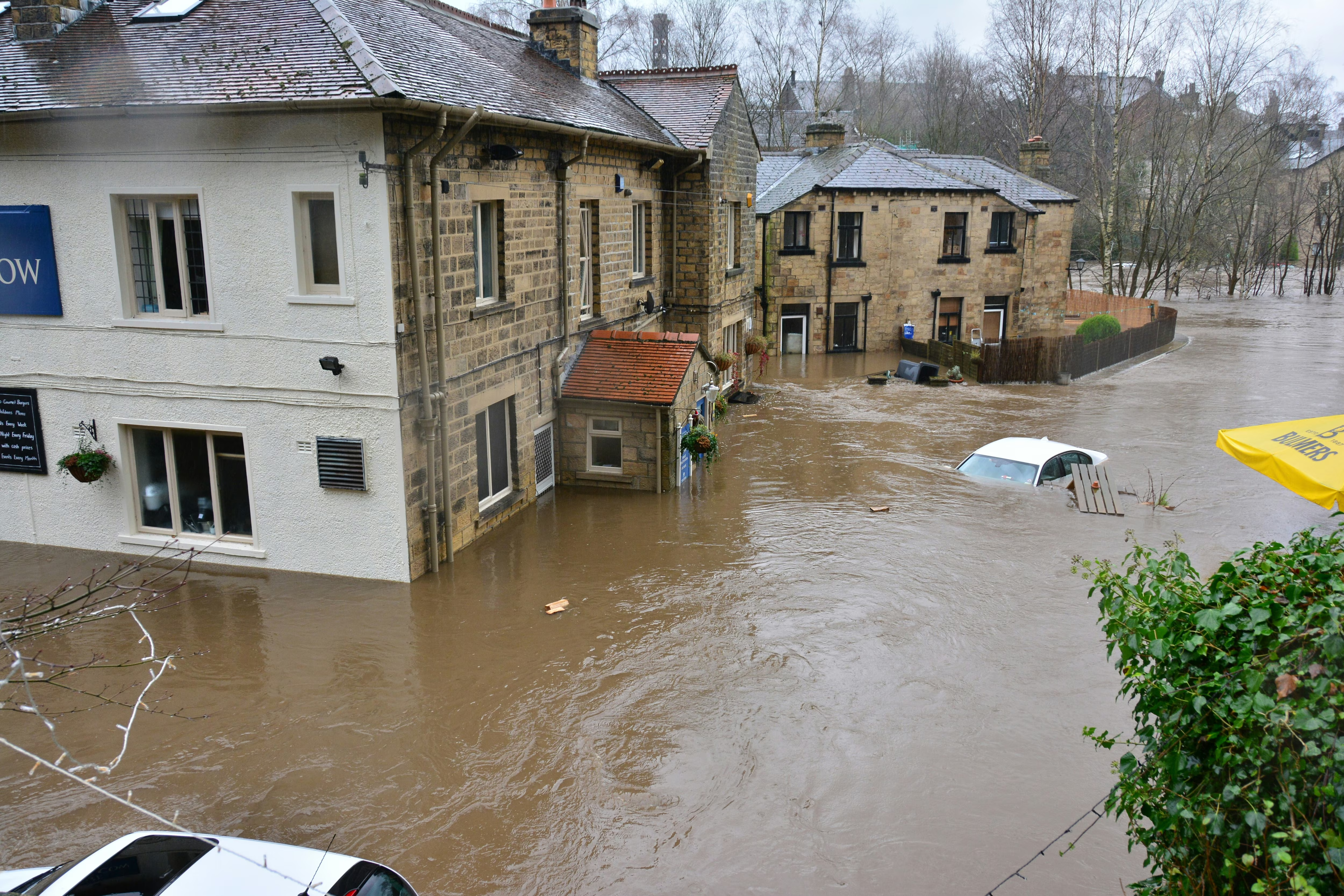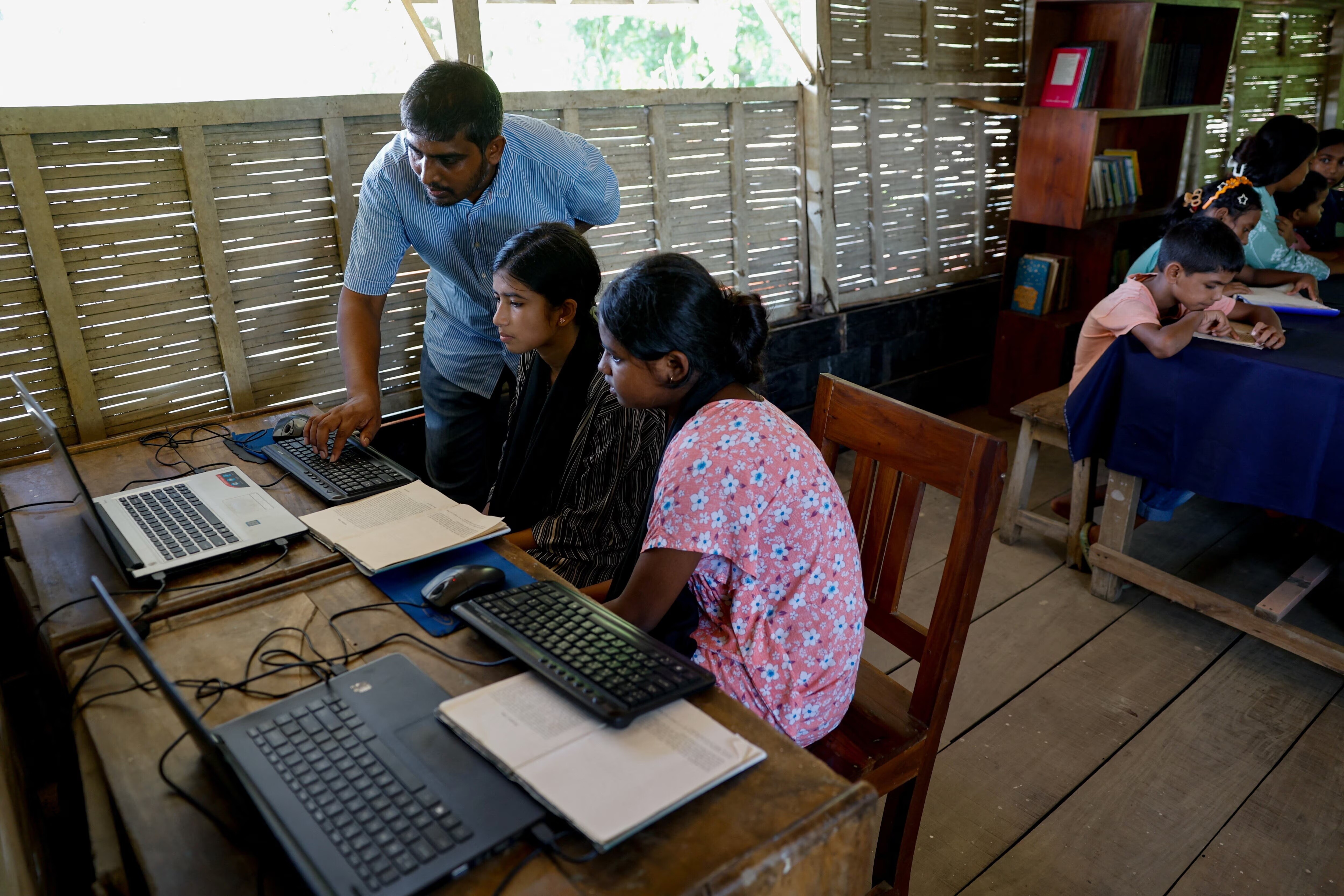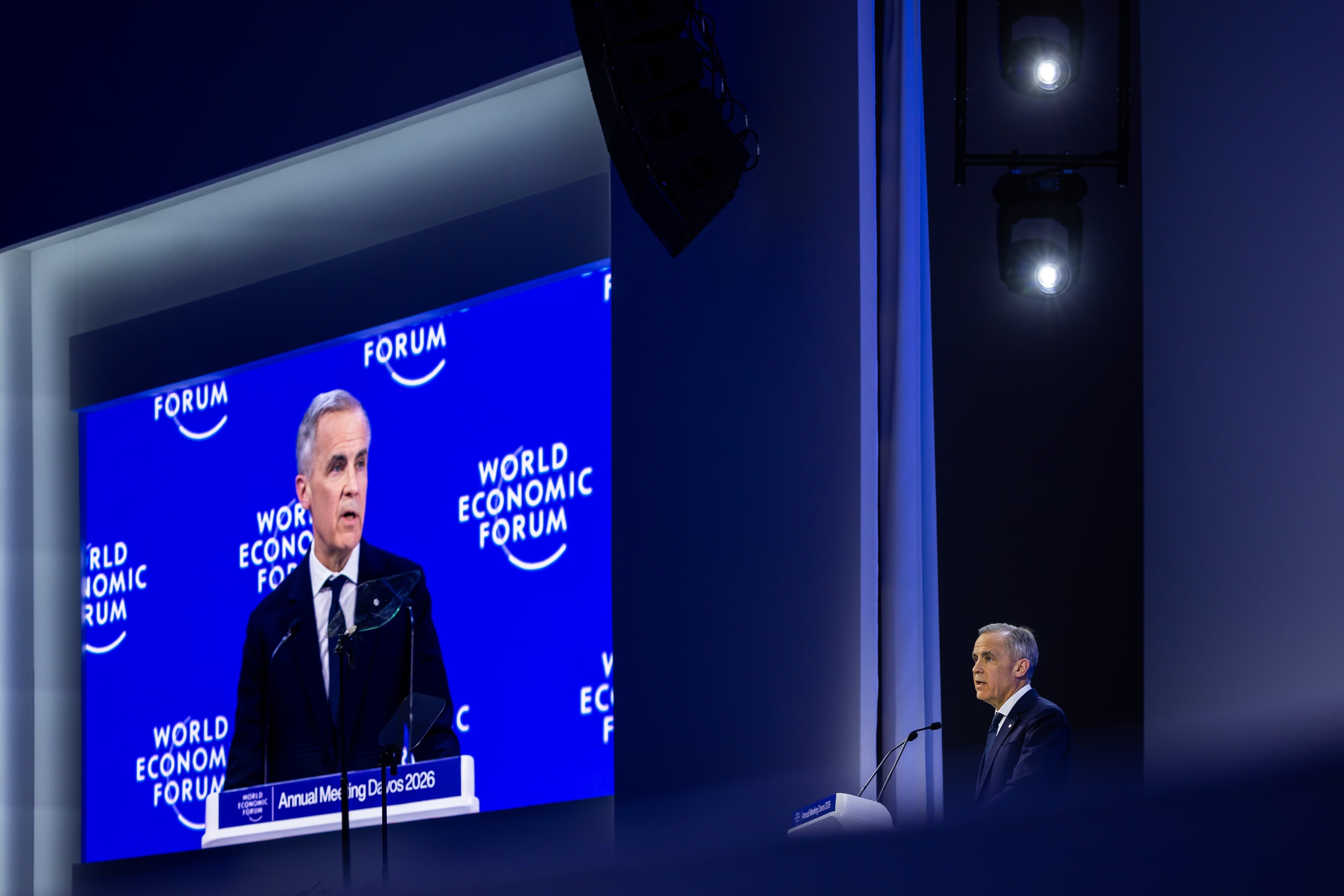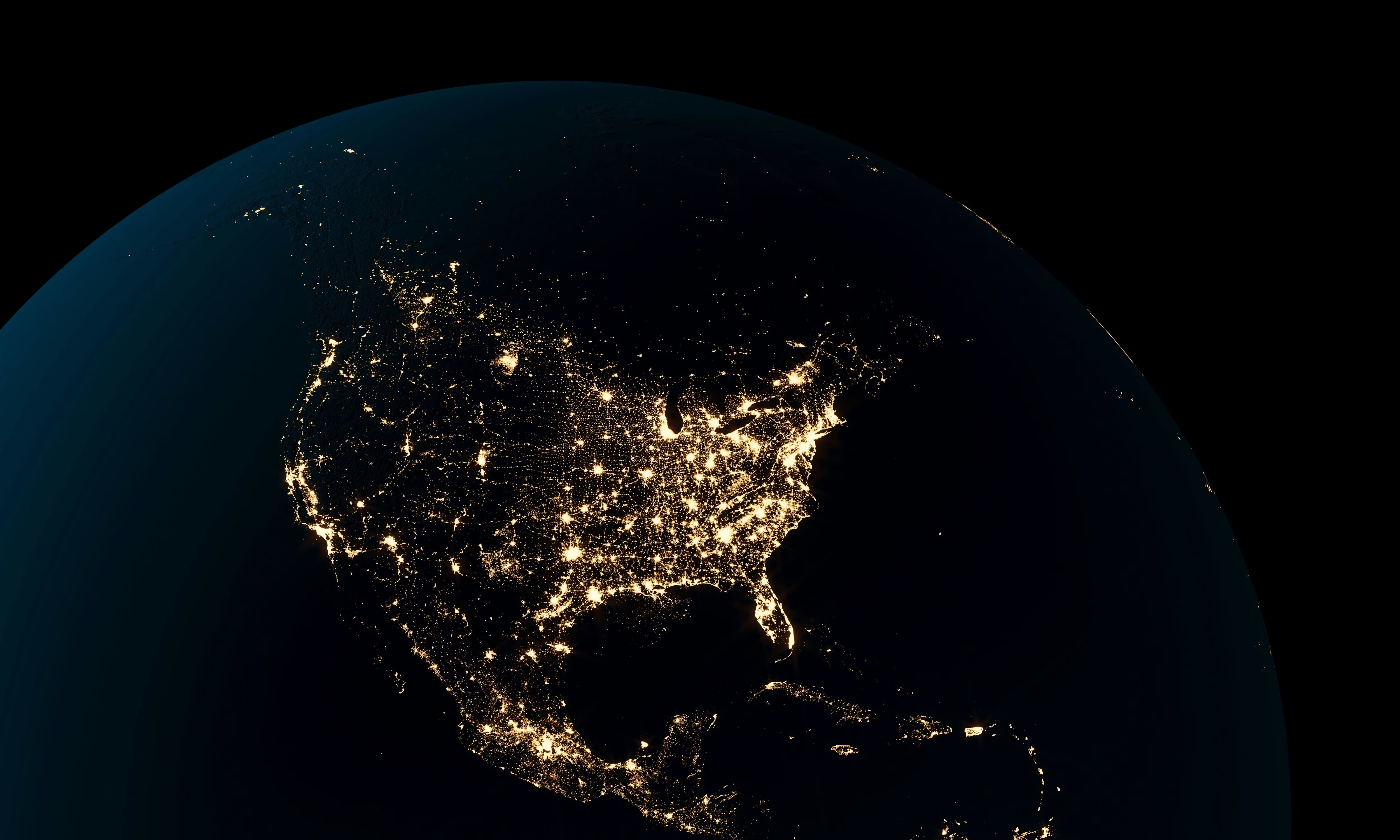How to motivate your team - from an organization with 17 million volunteers
Transcripción del podcast
Linda Lacina, Meet The Leader Welcome to Meet the Leader, a podcast where top leaders share how they're tackling the world's toughest challenges.
In today's episode, we talk to the head of the International Federation of Red Cross and Red Crescent Societies: Jagan Chapagain. He'll tell us what this organization, with 17 million volunteers, can teach any leader about motivation and engagement.
Subscribe to Meet the Leader on Apple, Spotify, and wherever you get your favorite podcasts. And don't forget to rate and review us. I'm Linda Lacina with the World Economic Forum and this is Meet the Leader.
Jagan Chapagain, IFRC Listening without learning is not useful. And I think when the leaders have that ability to listen and learn, that's when you engage with the purpose of the people who you want to be associated with your organizations
Linda Lacina, Meet The Leader When there is a flood or a hurricane or typhoon or any number of heartbreaking humanitarian crises, one of the first on the scene are volunteers for the International Federation of Red Cross and Red Crescent Societies, the IFRC. In fact, this organization has an astounding 17 million volunteers in 191 countries -- nearly every country in the world -- all responding to a blinding 65,000 disasters each year.
It is fitting that this group has at its head Jagan Chapagain. He joined the organization himself as a volunteer decades ago as a teenager in Nepal, looking to do good. He returned after college and has been with this organization ever since, serving in leadership positions until he was appointed to his current job as Chief Executive Officer and Secretary-General in February 2020.
He described this organization as a global network with local reach. That focus on local ownership and engagement is key to leaders looking to understand how the IFRC not only keeps millions equipped and prepared to step in on some of the world's worst days, but keeps those volunteers motivated and engaged.
He also talked to me about what the IFRC is focused on now, including strengthening resilience in countries and a first of its kind financing solution that can help countries more proactively weather climate and health crises that are coming down the pike.
He'll talk about all of this. But first, he gave us more background on the International Federation of Red Cross and Red Crescent Societies.
Jagan Chapagain, IFRC The IFRC is a membership organization. Our members are in 191 countries, and our members are primarily volunteer-based organizations. The volunteers come from the community. So globally, close to 17 million volunteers exist in 191 countries.
The work done by these organizations and the volunteers is primarily focusing -- and if I may group them, you know, big headings would be, of course -- responding to disasters and crises and health crises generally. You know, when something happens, a disaster happens or the crisis happens of the pandemic happens, the communities under the Red Cross also mainly because they are present in more than 200,000 communities around the world. So that sort of becomes a very primary responsibility.
When there is a fire, we have to fight the fire. But the better thing would be to prevent the fire from happening.
”
But increasingly, what we are focusing also is on building community resilience. I think constantly firefighting is not a solution. Of course, when there is a fire, we have to fight the fire. But the better thing would be to prevent the fire from happening. And for us, being a very volunteer-led, community based organization. Our need is to work with the communities, to build the community resilience so they are more prepared and more resilient to prevent or at least minimize the impact of the disaster or crisis.
And finally, what we are also increasingly doing is because of our history and also our relationship with the public authorities and the communities and multiple organizations, including the Forum, like here, the World Economic Forum. It's also try to influence. But the type of influence we want to bring is keep those communities at the center of everything you are doing. At the end of the day, whether it's a government, a politician or businessman or innovator or somebody who is inventing AI. Why do they do that? They do it because they want to make a difference in people's lives. Ultimately, that's the objective. Our key work in influencing is don't forget that along the way you can be a very successful multibillionaire. But if you haven't made a difference in people's life positively, it could be one, it could be ten, it could be 20, it could be a million. It's a force invest on making that difference in people's lives. That's how we make the world a better place for us. So that influencing, engaging, but from a positive angle. We never push anybody but what we like to build on the positiveness.
And this is also my personal belief that human beings fundamentally are people. They care, they love. They come with a positive mindset. And a lot of times in this world, we are not not nurturing that positive mindset. And lot of the things sort of gets filled with the negativity. And over the period of time, the negativity fills in in people's minds. So our approach is a constructive, positive engagement and through that hopefully influence the policymaker, decision makers to put people at the center.
Human beings fundamentally are people. They care, they love. They come with a positive mindset. And a lot of times in this world, we are not not nurturing that positive mindset.
”Linda Lacina, Meet The Leader Big picture, give people a sense of the landscape a little bit. Give us a little tour of the challenges facing the humanitarian sector right now.
Jagan Chapagain, IFRC I think the first thing is, of course, if you look at the context globally, I think probably 2023 was a year we probably met a lot of people forget COVID-19. I think the multiplicity of the crisis and the compounding nature of the crisis in many different parts of the world, and none of the crises were resolved before the new crisis comes. I think that's been the big, big negative highlight of 2023. Of course, the crisis like Ukraine and now recently Gaza are is the headlines every day.
But there are many other crises which are not on the headlines, like Sudan, for example. It's a major, major humanitarian crisis happening in Sudan. I had a chance to visit Egypt, Sudan, a border last year. The Myanmar situation is not very good. So there are multiple global contexts. I think that's sort of creating a much bigger impact on humanity.
The climate has been the number one strategic priority for us because climate is touching every aspect of human life.
”There are also big thematic topics we have to keep in mind. And for us, as I see, the climate has been the number one strategic priority for us because climate is touching every aspect of human life, and it's also contributing to more or less the global crisis we are dealing with now.
The second area is the health, primarily from the community health point of view, as COVID-19 showed that the community preparedness not only in the developing world but also in the developed world was very, very weak. And because the community health infrastructure was so weak, everybody rushed to the hospital and the hospital systems collapsed. The importance of community health and we believe the Red cross can be the bridge between the community and the government. Let me put it that way, in the in the health system.
And the third area, which we find a maze of global events of crisis is the context of migration and displacement. I think every year the number of people. Who are migrating and where this place is growing. I spent last year -- nine days actually -- tracing the migration routes in Central America starting from that income jungle all the way to Mexico U.S. border. And this year, I did something similar in Africa. You know, starting from Gambia and going all the way to Egypt. So I think that these three big themes, we believe are really impacting the humanitarian situation.
And final point I would like to highlight when we talk about a situation we should not forget is the issue -- Of course in our jargon we call it protection, gender and inclusive. I think humanitarian response is not only about distributing humanitarian aid. It needs to be done in a way that it promotes protection, particularly to the people who are in vulnerable situations. Also keeping in mind that our differentiated needs and impact on women and in different gender.
Finally, the inclusion: the people who are already marginalized are people who are minority. They have the one who get most impacted, and that's only the last one to receive their assistance. So while of course we have, I think, pretty well-established response systems in the world, not only in my organization but in many organizations, but putting protections and inclusion at the center of everything we do, it's extremely important to strengthen the impact to have a much better impact on our population.
Linda Lacina, Meet The Leader The IFRC, you guys just announced this very innovative financing initiative. And so why don't you tell me a little bit about it and why it's so innovative?
Jagan Chapagain, IFRC We like to believe it's very innovative. I hope everyone else agrees. No, what happened was, you know, we are having this we call disaster response emergency fund address. It's been there, I think close to 38 years now. And it has been a grant-based fund. We have the donors who provide the grants, and we manage the grants to respond to disasters and crises. Primarily the crises that do not make to the headlines. So small-, medium-sized disasters, which happened in the part of the world that doesn't create the news.
But for people who are impacted, doesn't matter whether they are in the big news studio or not, the people are impacted. They need that. So we have been using this fund as a fund that can go to the area which are not on the on the news, and the fund which is directly allocated to a local actor. That's our Red Cross and Red Crescent societies.
But the last few years, what we realized was the number of disasters and crises is increasing. I think the frequency and also the scale of the disasters, it keeps on growing. That means purely the grant-based fund is not being enough. So, of course, you start using the fund from the beginning of the year, and if you have used it up, then the second half of the year you don't have money available for the crisis that happens in the second half of the year. And in a number of years, we have quite struggled to maintain that. And that's when this idea that how do we multiply the value of money we are getting from the donors, the grand grant money and working with the number of private sector organizations? Because, again, we are not in the business of insurance and things like that. So it's not like this. We don't we don't have in-house expertise. So we started partnering with organizations to start thinking differently. And then after I think almost two, two-and-a-half years of work, we came up with this quite innovative insurance mechanism where the insurance premium we get as a grant from the donors working through the insurance companies, we multiply it up to five times. But the difference here is we are not insuring a particular incident. Certainly not the fire incidents or volcano Insurance. So we are not insuring a particular incident or even particular community or even a particular country. Here we are insuring a fund, and that means it provides us with the flexibility to use that fund to a place and to a crisis or a disaster, which requires the fund. And from that point of view, it has I would say I've added innovation in that sense.
Linda Lacina, Meet The Leader It's the first of its kind, as I understand?
Jagan Chapagain, IFRC As far as I know, this is the first of its kind.
Linda Lacina, Meet The Leader Why is that?
Jagan Chapagain, IFRC There has to be a first to everything no? And we are hoping that others can join this idea. And basically we multiply the resources available for people who need it the most.
Linda Lacina, Meet The Leader What's needed to scale this further?
Jagan Chapagain, IFRC We launched it last year, of course, and initially it is modest because we also want to make sure that the concept is right. It works in a accountable and transparent manner. And then the idea would be to try to expand it further. And here I think the two things. One is I think we need to be confident with the proof of concept. The second thing is, although we will not need exactly the same level of grant, but we do need grant to pay for the insurance premium. So I think a combination of this, I think, we will be able to scale up.
Linda Lacina, Meet The Leader Why are initiatives like this so important just for rethinking insurance in general?
Jagan Chapagain, IFRC The crises are growing. The needs are growing. The money is not growing at the same pace. It is growing. I know there is a lot of criticism. I know it is growing, but not at the same pace. So, if that is not happening, we have to find alternative solutions. And this I believe, could be one important contributor. I am not saying this is the only one, but this can be one important contributor to try to sort of make the available money more valuable and sort of expand the pool of resources available to address the growing and massively growing humanitarian needs in the world.
What is really important also here is and this is something, you know, in every opportunity I like to highlight is, you know, when the crisis happens, generally the donors, the partners, are willing to contribute. But as we have seen, this is not sustaining and this is not a sustainable model. So there has to be increased investment on preventing or reducing the fragility of our crisis.
And it is possible. We have examples of success. For example, in Bangladesh, in the coastal area, there are examples of success where investing and building community resilience and reducing the impact of the disasters exist. But somehow the wallet opens when the crisis happens. And this we have to change. And for me here, you know, coming to the World Economic Forum and listening to a lot of these debates, and this is one of the key matters we want to convey to the political and economic leaders is that we have to change the emphasis, otherwise the world will not be able to sustain the growing needs.
Linda Lacina, Meet The Leader I wanted to talk a little bit about your background with the organization you first got your start with the Red Cross is a teenaged volunteer correct in Nepal? Tell me a little bit about that, and how your perspective as a leader and a humanitarian worker has changed since.
Jagan Chapagain, IFRC Probably the fundamental belief hasn't changed. I come from a humble background, from a little village in Nepal. When I was in high school. I wanted to engage in something, and I think probably from the very young age, I always had that probably influence from my parents to do something for others. And that's been always been my motivation, that when you come as a human being in the world, you look after yourself. Anybody does that. But doing something for others was always a motivation. And also I had always a motivation to do something, you know, that gives me a space to provide some sort of leadership. I don't think I was very clear that time, but I had that idea a young person. And in my high school, the Red Cross was one of the vehicles. We had few other instruments.
So when I joined, I really didn't know much about Red Cross. I only knew that they do something good and I was attracted to do something good. Once I joined and that's when I understood the organization and understood its history, its background and this whole principle of, you know, the principles of humanity and, you know, impartiality. And this became very attractive to me as I grew. And when I finished my university, I was lucky to be able to be hired by the Red Cross to manage a refugee program in the country at a very young age. So I was just out of university. I didn't have any job experience, but I got that opportunity, and I think after 40 years of working in Nepal, I started working internationally and my first engagement was in Central Asia, and I haven't stopped.
But the fundamental belief that each of us should be committed to do something good, you know, in very general terms, to others, I think that fundamental belief hasn't changed. Of course, as I grew with the opportunities I was provided with by the government, you know, as a very ordinary volunteer from a village in Nepal. I've been I've been very, very privileged to get the opportunities to do different roles initially in big crisis and later on more in management and leadership roles. I absolutely believe that I have been enormously privileged, and if I do not use this privilege with the background I have to make a difference on somebody else's lives. I would not be a very happy man, and I like to be happy.
I absolutely believe that I have been enormously privileged, and if I do not use this privilege with the background I have to make a difference on somebody else's life. I would not be a very happy man, and I like to be happy.
”Linda Lacina, Meet The Leader Organizations like the Red cross -- you'd mentioned - have got a huge base of volunteers, a lot of leaders and a lot of workplaces. They have an engagement problem. People, they don't feel like they're connected to the organization and they feel grumpy. What can leaders learn from an organization like Red Cross that has to engage people who don't have to be there, who are volunteering their time? What can they learn to kind of keep these people inspired, excited? What can they do? What's a tangible thing they can do?
Jagan Chapagain, IFRC You know, for me, I repeated many, many times, you know, the one of the critical quality of the leaders -- and it's probably true for everybody -- But if you want to be a leader is ability to listen. I think it's it's extremely, extremely important in in any context. Ability to listen and learn. Listening without learning is not useful. And I think when the leaders have that ability to listen and learn, that's when you engage with the purpose of the people who you want to be associated with your organizations and the value and objectives of your organizations.
Listening without learning is not useful. And I think when the leaders have that ability to listen and learn, that's when you engage with the purpose of the people who you want to be associated with your organizations and the value and objectives of your organizations.
”And I'm not claiming that in tge Red cross, we are perfect. I think we do have issues. You know, when you are working with people, there will be issues, but that listening and learning and defining a clear purpose on why we are doing something as an organization or any component of the organization,I think that's what engages people. In COVID 19, you know, when lockdown was happening and, you know, people are asked to stay at home, we had on average, 1 million volunteers every day going out to help others, 1 million volunteers. And the first volunteer who died because of COVID-19 was 18th of February 2020. 18th of February. Before it was declared a pandemic. I'm very sorry that that's what happened. And he was a young man from Italy. But that belief in the purpose and that belief that I can make a difference on somebody else's life motivates these volunteers. And as a leader, and for me personally, as I started myself as a volunteer, it becomes critically, critically important. Listen, learn, help define a purpose together, and demonstrate that you are delivering on that purpose.
Listen, learn, help define a purpose, and demonstrate that you are delivering on that purpose.
”Do you become 100% successful every time? No. But what people need to see is you have given 100%. And when people see is you have given 100%, even if you haven't achieved 100%, people still believe you and people still are motivated and inspired to pursue that purpose. And I think, for me, that's an extremely, extremely important element of leadership.
Linda Lacina, Meet The Leader With all of the risks that are swirling around, we've seen it for the global risk report. We've talked about a lot of them right now. What is the one thing that leaders need to do in 2024 that needs to move forward this year, so that we can be poised and ready for the people we want to be five, ten years down the line. What should they do this year?
Jagan Chapagain, IFRC It might sound a bit cheesy, but the theme of this Forum: building trust. A lot of the crises we are facing around the world, the underlying issue has been the lack of trust. And with the technology growing and of course the AI we are talking about, also here, is of course that technology brings a lot of positives, but also if it is not used, it can also contribute in eroding the trust. And that's where I think it's extremely, extremely important that the leaders' job is focused on the positive and contribute to building the trust. Building trust means do what you say and say what you mean. And if enough leaders do that, that starts recreating the trust in the world. And without that, a lot of the other solutions would not produce the result we are all looking for.
Building trust means do what you say and say what you mean. And if enough leaders do that, that starts recreating the trust in the world. And without that, a lot of the other solutions would not produce the result we are all looking for.
”Linda Lacina, Meet The Leader That was Jagan Chapagain. Thanks so much to him and thanks so much to you for listening. For a transcript of this episode, as well as transcripts from my colleagues' podcast, Radio Davos and the Book Club podcast, go to wef.ch/podcasts.
This episode of Meet the Leader was produced and presented by me with Jere Johanssen and Taz Kelleher as editor, Juan Toran as a studio engineer and Gareth Nolan driving studio production.
That's it for now. I'm Linda Lacina from the World Economic Forum. Have a great day.
The International Federation of Red Cross and Red Crescent Societies is powered by 17 million volunteers in 191 countries. At its helm is Jagan Chapagain, a man who started himself at the organization as a teenaged volunteer in Nepal, wanting to do good. He returned after college and has been with the organization ever since, eventually serving in a number of leadership roles until he was appointed to his current position of chief executive officer and secretary general in February 2020. In this wide-ranging conversation, he sets the stage for humanitarian challenges the world faces, as well as how the IFRC is developing solutions to prevent the next crisis from occurring. He'll also share a first-of-its-kind for the humanitarian sector -- an insurance solution that can transform disaster preparedness and resilience. But he'll also share what any organization can learn from the IFRC on engaging and motivating teams -- and the simple lessons any leader can keep in mind.
Other related podcasts:
Helping the unprecedented number of forcibly displaced: https://www.weforum.org/podcasts/meet-the-leader/episodes/kelly-clements-unhcr-refugee/
What COVID taught one epidemiologist about speaking to build trust, without jargon: https://www.weforum.org/podcasts/meet-the-leader/episodes/speak-effectively-takeaways-from-scientist-turned-comms-founder/
Alojado por:
Más episodios:
La Agenda Semanal
Una actualización semanal de los temas más importantes de la agenda global
Más sobre Resiliencia, Paz y SeguridadVer todo
Kriti Sharma
11 de febrero de 2026
